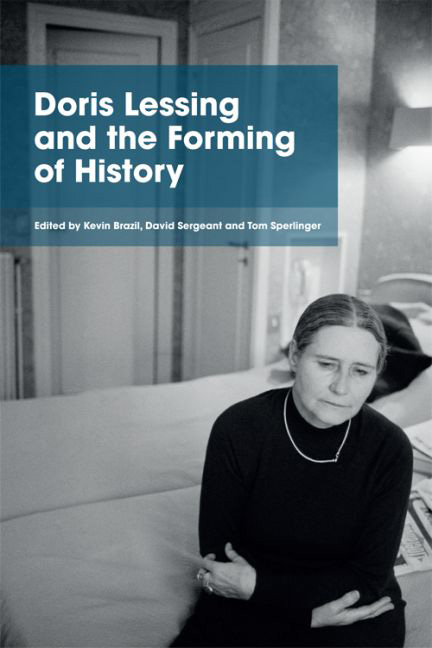Book contents
- Frontmatter
- Contents
- Acknowledgements
- Timeline
- Introduction
- 1 Early Lessing, Commitment, the World
- 2 ‘I'm an adolescent. And that's how I'm going to stay’: Lessing and Youth Culture 1956–1962
- 3 Sequence, Series and Character in Children of Violence
- 4 The Politics of Form: The Golden Notebook and Women's Radical Literary Tradition
- 5 Readers of Fiction and Readers in Fiction: Readership and The Golden Notebook
- 6 From The Grass is Singing to The Golden Notebook: Film, Literature and Psychoanalysis
- 7 ‘funny thing laughter, what's it for?’: Humour and Form in Lessing's Fiction,A
- 8 Lessing and the Scale of Environmental Crisis
- 9 Lessing and Time Travel
- 10 Lessing's Interruptions
- 11 Lessing's Witness Literature
- 12 A Catastrophic Universe: Lessing, Posthumanism and Deep History
- Select Bibliography
- Notes on Contributors
- Index
7 - ‘funny thing laughter, what's it for?’: Humour and Form in Lessing's Fiction,A
Published online by Cambridge University Press: 26 May 2017
- Frontmatter
- Contents
- Acknowledgements
- Timeline
- Introduction
- 1 Early Lessing, Commitment, the World
- 2 ‘I'm an adolescent. And that's how I'm going to stay’: Lessing and Youth Culture 1956–1962
- 3 Sequence, Series and Character in Children of Violence
- 4 The Politics of Form: The Golden Notebook and Women's Radical Literary Tradition
- 5 Readers of Fiction and Readers in Fiction: Readership and The Golden Notebook
- 6 From The Grass is Singing to The Golden Notebook: Film, Literature and Psychoanalysis
- 7 ‘funny thing laughter, what's it for?’: Humour and Form in Lessing's Fiction,A
- 8 Lessing and the Scale of Environmental Crisis
- 9 Lessing and Time Travel
- 10 Lessing's Interruptions
- 11 Lessing's Witness Literature
- 12 A Catastrophic Universe: Lessing, Posthumanism and Deep History
- Select Bibliography
- Notes on Contributors
- Index
Summary
It's safe to say that humour is rarely considered one of Doris Lessing's strong suits. Indeed, her writing is more typically noted for its serious intent, with a ‘hectoring’ tone and a quality of ‘unrelenting analysis’ that make for uncommonly demanding reading (Watkins 2010: 164; Singer 2010: 106). This aura of seriousness can be attributed to the sweeping developments in twentieth-century history she wrote about, addressing her life's experience of colonialism and decolonisation, imperialism and global communism, class and gender, and youth and ageing, and developing advance perspectives on such new topics as ecology, posthumanism, and the Anthropocene. This is the side of Lessing's work the selection committee highlighted when awarding the author the Nobel Prize in Literature for 2007, citing her ‘visionary power’ and her ‘scrutiny’ of ‘a divided civilization’ her sense of humour was not mentioned (‘Nobel Prize’).
But perceptions of literary seriousness are based not just on the content of a writer's work, but on its style and form. And rather than being interested in play, Lessing is routinely described as a ‘didactic’ writer, concerned to instruct. Among the first critics to apply this word was Joan Didion, who judged in 1971 that Lessing comes off as a ‘missionary devoid of any but the most didactic irony’ (1990: 119). Didion herself is hardly known to leave readers in stitches, but her renown as a stylist connects her opinion that Lessing cannot manage shades of irony – the rhetorical basis of most literary humour – to the wider sense of her writing as deficient in style. To never be funny is not ‘to “write well”’, if we invoke, with Didion, the jargon of the workshop (119). But one needn't be as condescending as Didion, nor so unfamiliar with the full range of Lessing's thought, to share the view that her writing is not well crafted (a judgement reassessed by Tom Sperlinger elsewhere in this volume). Claire Sprague, for example, cites Roger Sale's comment, echoing Didion, that ‘she has no wit, and only a very serious kind of humor’ (Sprague 1987: 14). A rare defence comes from Gayle Greene, who argues that while Lessing is ‘assumed to have no sense of humor’, in fact her sentences ‘bristle with irony’, the humour ‘understated’ but ‘potent’ – ‘dark comedy, admittedly’, perhaps not for everyone, but still ‘wonderful’ (1994: 31–2).
- Type
- Chapter
- Information
- Doris Lessing and the Forming of History , pp. 97 - 110Publisher: Edinburgh University PressPrint publication year: 2016



